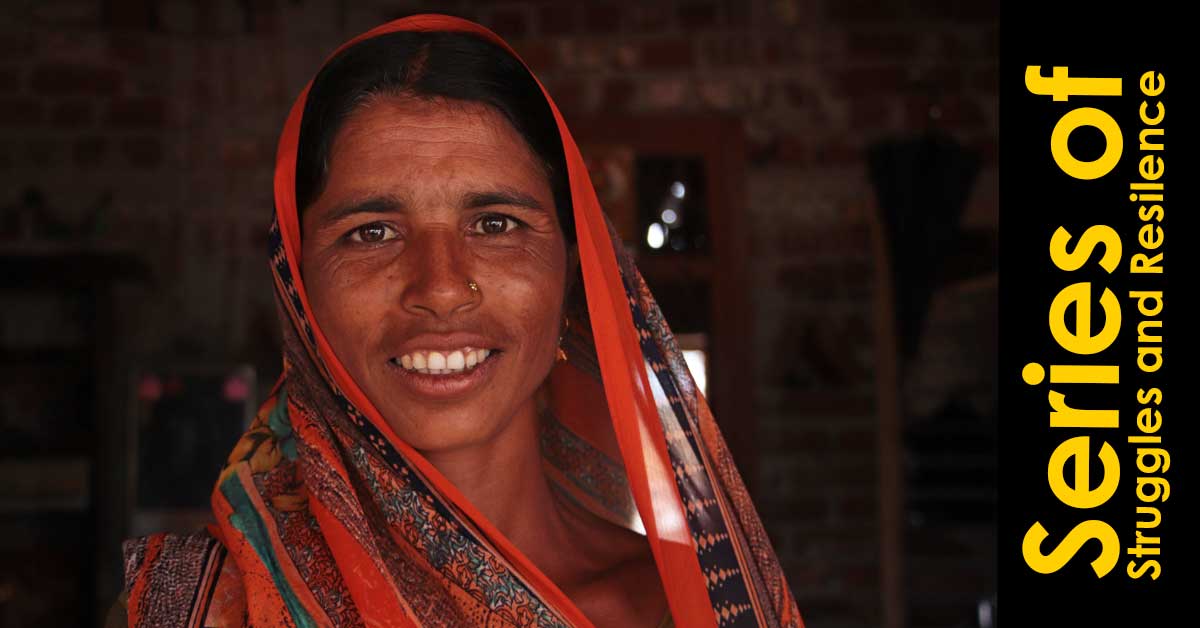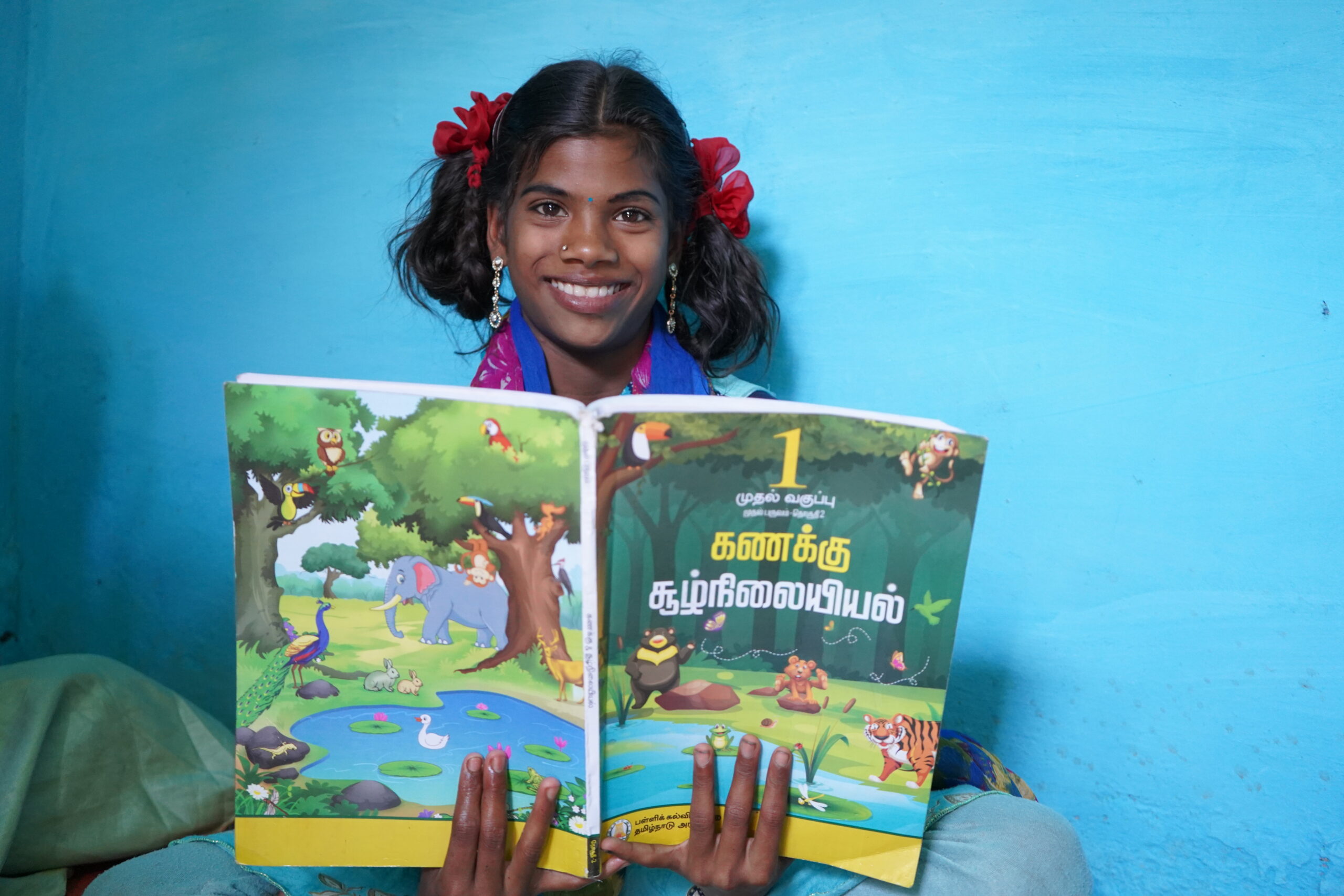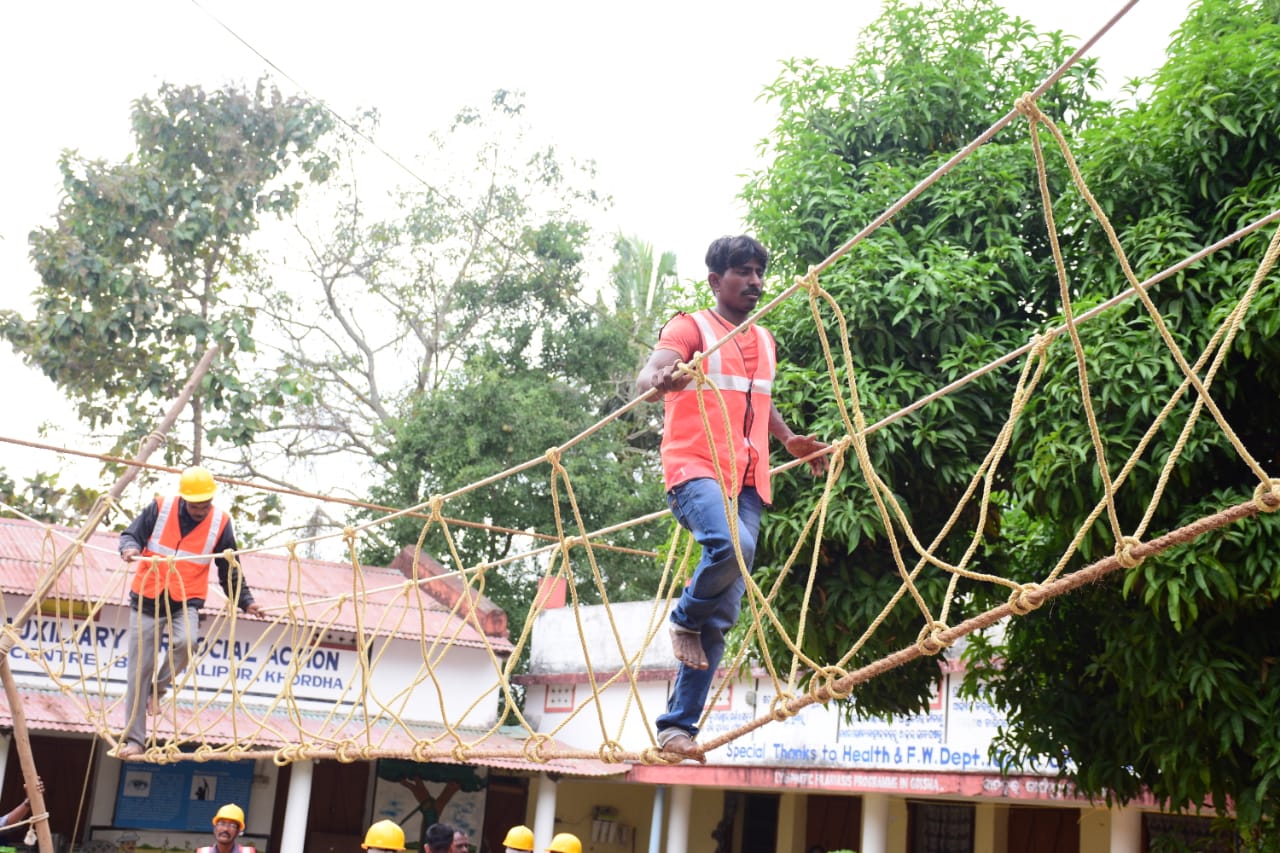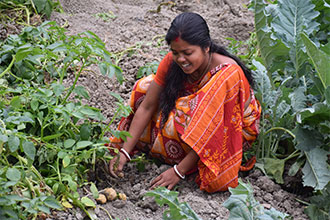CASA BLOGS

Training is the best when it brings people together
Story by: Arushi Narchal
Written By: Kajol Tanaya
Despite constituting 80% of the agricultural workers in the majority of the developing world, women farmers are unfortunately the group that has to sail through overwhelming challenges. They manage farming activities within limited access to essential resources like irrigation, fertilisers, and market outlets. The lack of exposure to technical knowledge and institutional support makes their job even harder. Moreover, they face the dual burden of catering to the needs of family and farm.
One such story is of Devan, a 35-year-old woman farmer residing in the Jhamri village of Rajasthan. As her family expanded with the responsibilities of children to bear, finances started to thin out. The earning opportunities in the village were scarce. Water scarcity and arid climate made agriculture less profitable. Therefore, to make ends meet, Devan’s husband migrated to Gujarat as a daily wage labourer. Whatever money he managed to earn, was getting completely consumed in paying bills and school fees. Devan had to plough a tough row. Balancing household responsibilities, she began working on their small farm holding, cultivating maize, jowar and tur dal for home and kapas for commercial purposes.
With the spiralling of the COVID19 pandemic and limping economy, Devan like many other indigenous female farmers was caught in the hands of emerging scarcities. Upon the Panchayat faltering to take notice of the needs of the livelihood-hunting masses, 150 other women from Jhamri, Aneswar and Ladela villages led a movement to register for Rajasthan Government’s livelihood schemes. Devan participated in the movement where they formed a group and registered themselves under the Poora Kaam Poora Daam, MGNREGA scheme to claim 90 days of work during the pandemic. Acquiring a receipt from the Panchayat, the women officially confirmed their enrollment.
The awareness regarding the Government provisions for the welfare of marginalised is very sparse within these communities. It was through CASA’s tenacious efforts that these women got familiarised with their Rights and initiated the movement. The benefits of such awareness were not limited to applying for the State-provided schemes alone. Devan and ten other women identified the need for intrinsic support and formed a collective farmer’s group.
This unity helped in not only improving their individual capabilities but also provided them financial security as they now performed together towards reaping the best of their crops. When CASA organised an organic manure and crop protection training program in the village, Devan with the collective farmers’ group attended the workshop. They were trained to prepare Jeevamrut compost that will help them reap high yields without falling into the trap of using chemicals to protect crops. Jeevamrut is natural, eco-friendly, affordable and easy to prepare. The demonstration was done using locally available organic and unprocessed components such as cow urine, dung, jaggery, gram flour and leaves from local trees.
In an interaction with CASA’s team during the training, Devan shared how CASA was able to create a transformative impact in her life. She says, “Initially we (the women farmer’s group) did not know one another despite going through the same challenges with farming and responsibilities. It always felt like a lonely road to travel. The isolation we suffered due to the lack of awareness was very distressing. I could only identify the lack when we united and discussed our predicament. The solidarity that we have developed was not possible without CASA’s encouragement. Amidst this pandemic, this opportunity of gaining peer advice has been fruitful on our emotional front as well. It has enhanced our confidence by making us self-reliant. We also protect one another from domestic harassment and all forms of abuse. Had we never come across CASA, we could have not even known how miserable our lives were.”
Many women farmers in Rajasthan struggle through innumerable challenges beyond the scarcity of water. They have the least representation in agricultural entrepreneurship, initiatives or movements. Limited earnings puncture their capacity in purchasing fertilisers or hiring farm help in their absence. Conclusively, they perform All-year-round labour for marginal yield.
With collective farming, the women united their landholdings and dedicated suitable patches to each crop. They rotate the crops and maximise yield by working together on the united stretch of land. As leaders and as members, they progress in several skills from decision-making to planning distribution. Empowered by training to make organic compost, they could cut a lot of expenses over chemical fertilisers. Natural fertilisers do not pollute the water table or strip the soil of its nutrients. Thereby, the yield would not fall behind with the progressing years. Facilitating the growth of these women also helps the progress of the whole family in unison.
 Previous Blog Post No Retirement For The Deprived
Previous Blog Post No Retirement For The Deprived The Agonizing Battle of Puchki Bai
The Agonizing Battle of Puchki BaiFeatured Post

Empowering Rural Education in India:
14 Mar 2024
Introduction: In the vast tapestry of India, education is the key to unlocking the door to a brighter future. However, the challenge of providing quality education to the rural parts of the country persists. In this blog post, we will delve into the crucial role that Non-Governmental Organizations (NGOs) play in bridging the educational gap […]

Empowering the Future: Disaster Management Training for School Children in Disaster-Prone Areas
22 Feb 2024
Introduction: In the face of increasing natural disasters worldwide, it becomes imperative to equip our younger generation with the knowledge and skills necessary to handle emergency situations. Children, being one of the most vulnerable groups during disasters, can greatly benefit from disaster management training. This blog explores the significance of imparting such training, with a […]

Empowering Women: Transforming Lives Through Sustainable Livelihoods in Rural India
16 Feb 2024
Introduction: In the heart of rural India, a silent revolution is taking place as women embrace newfound opportunities for sustainable livelihoods. This transformation not only uplifts individual lives but also contributes to the overall development of communities. At [Your Organization’s Name], we are committed to driving positive change by providing women in rural India with […]



Leave a Reply
You must be logged in to post a comment.